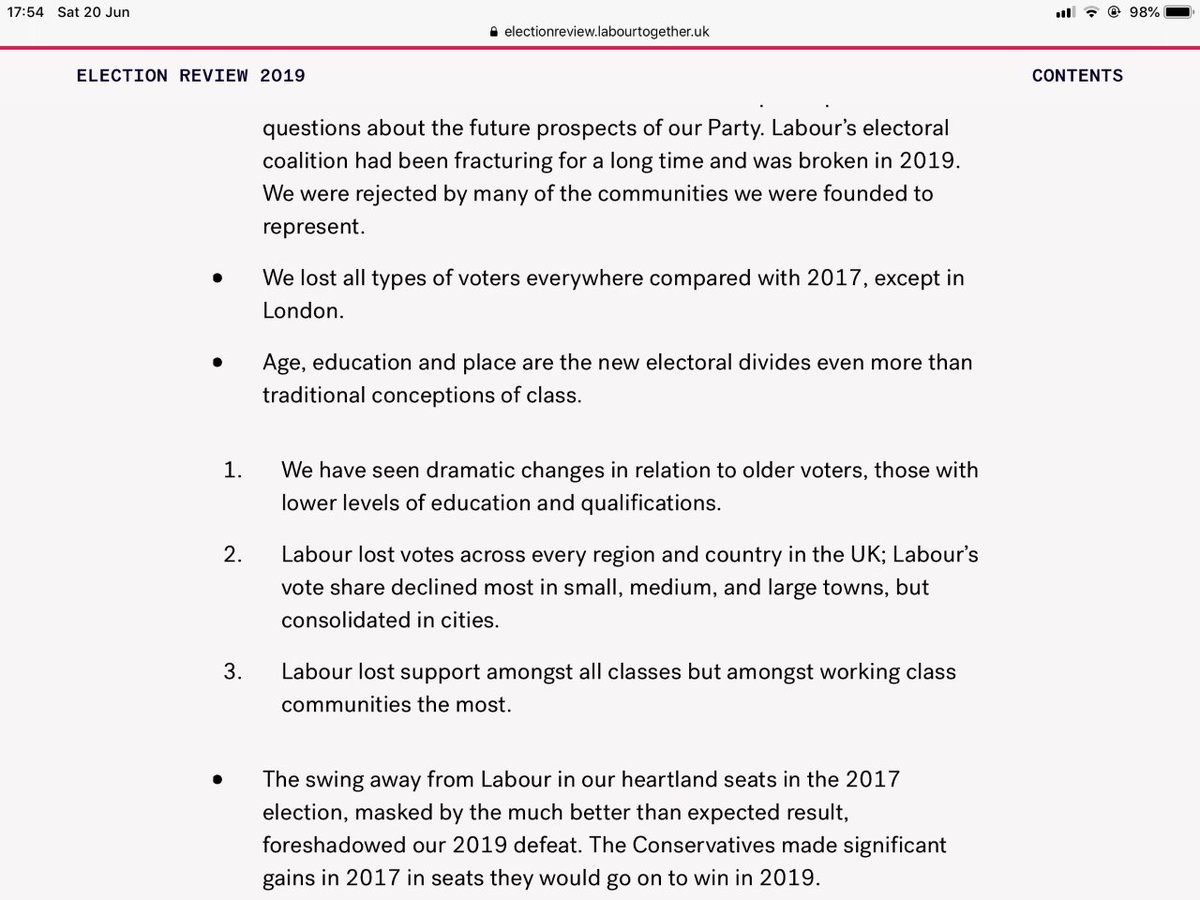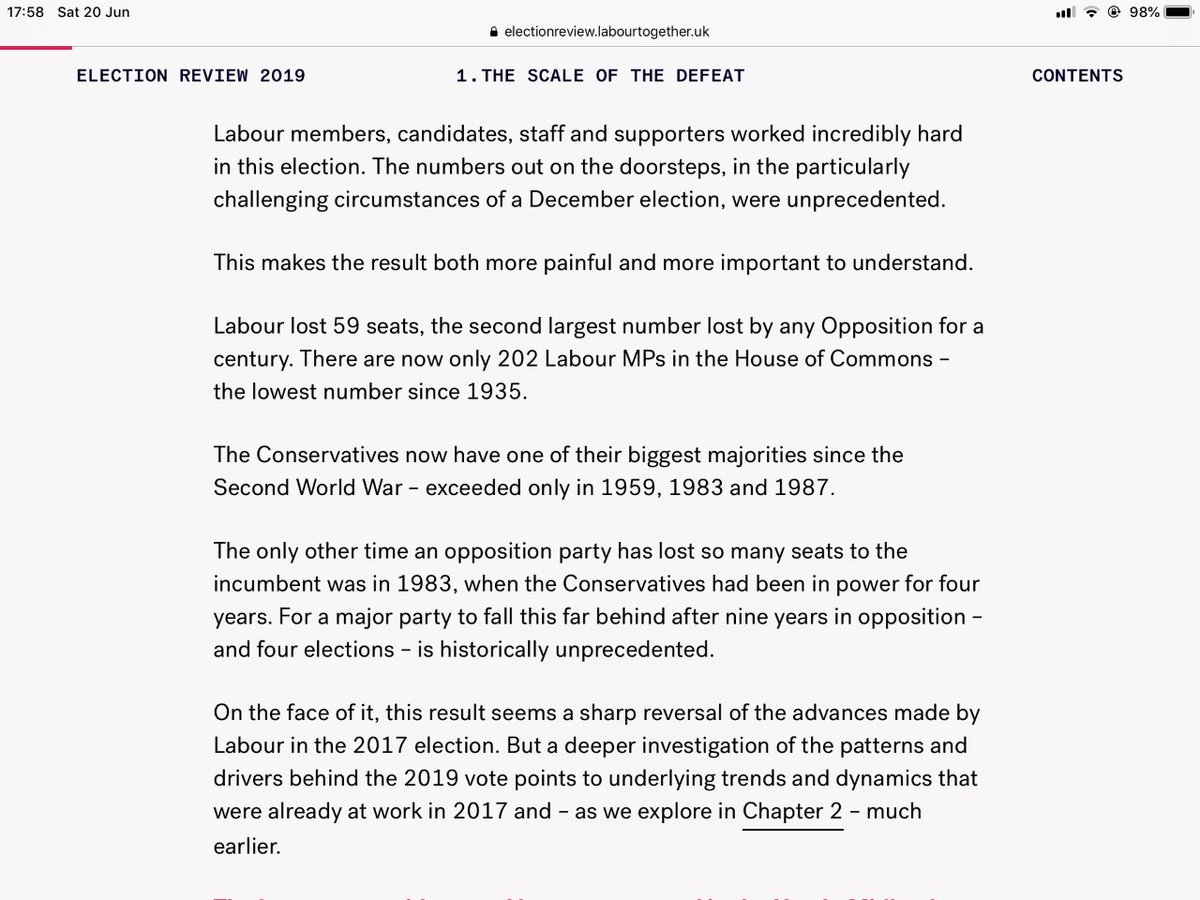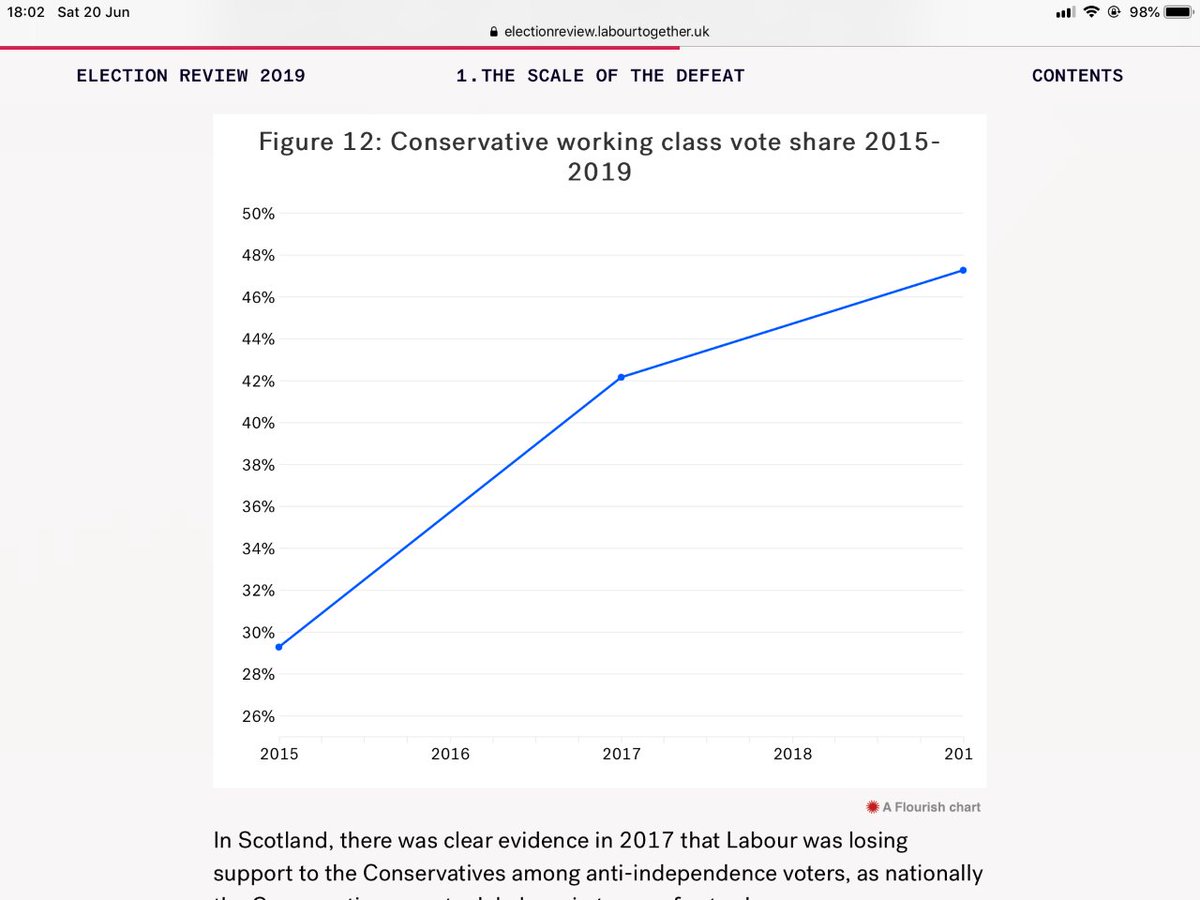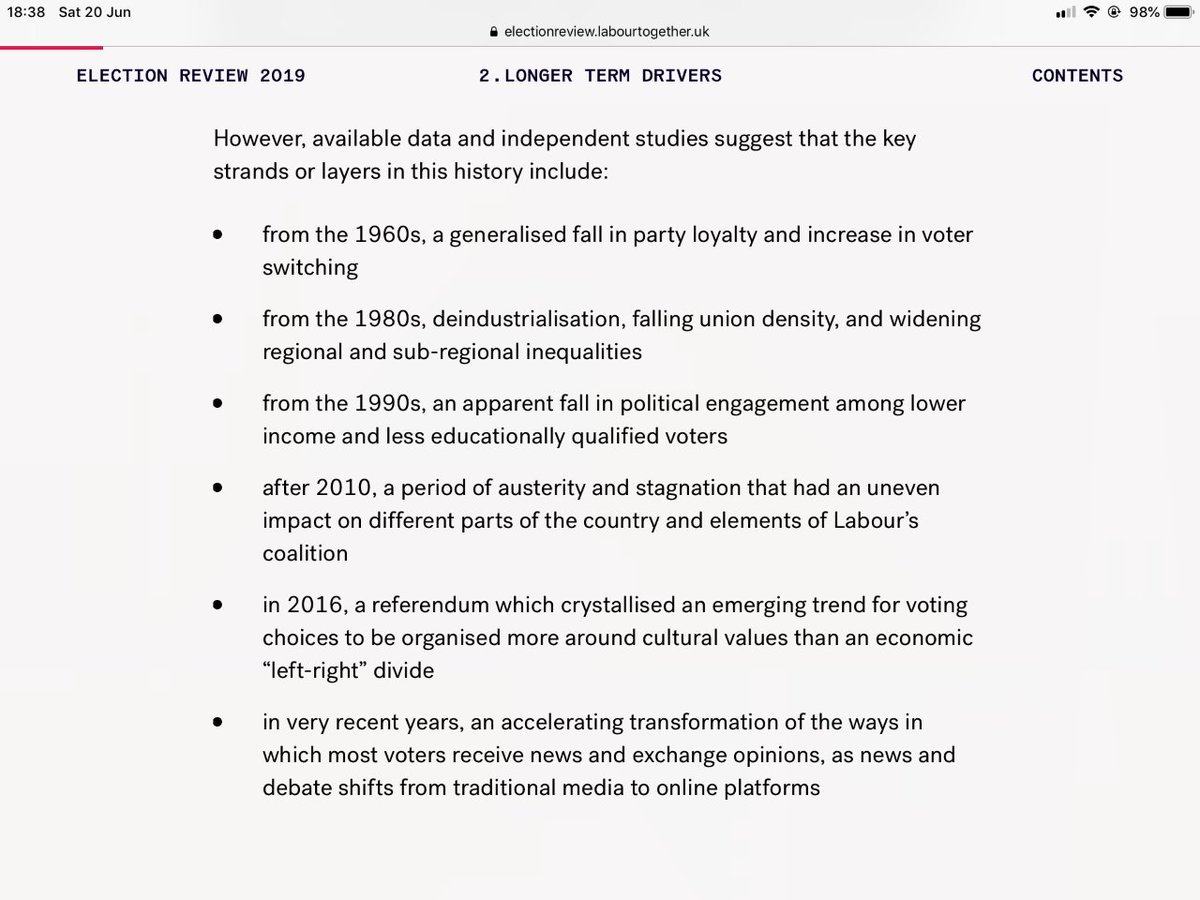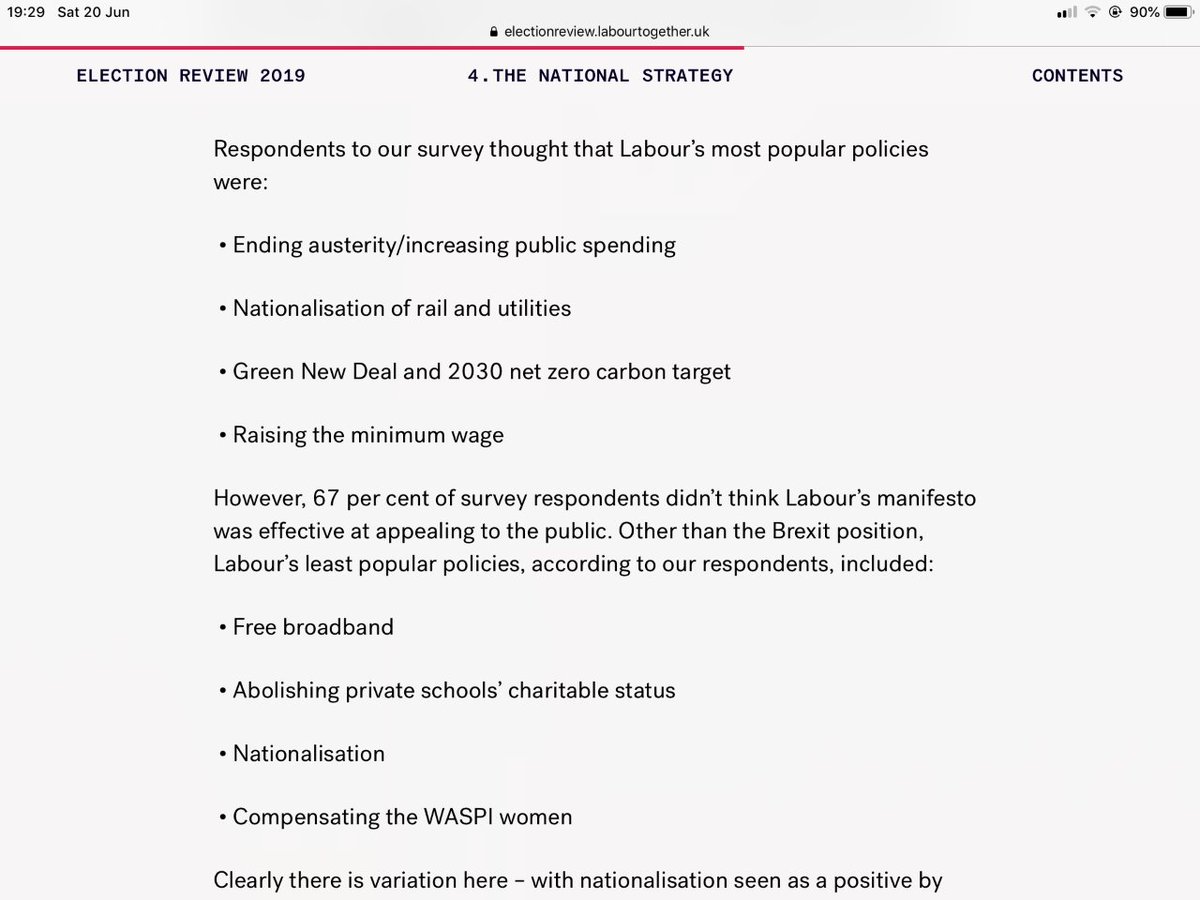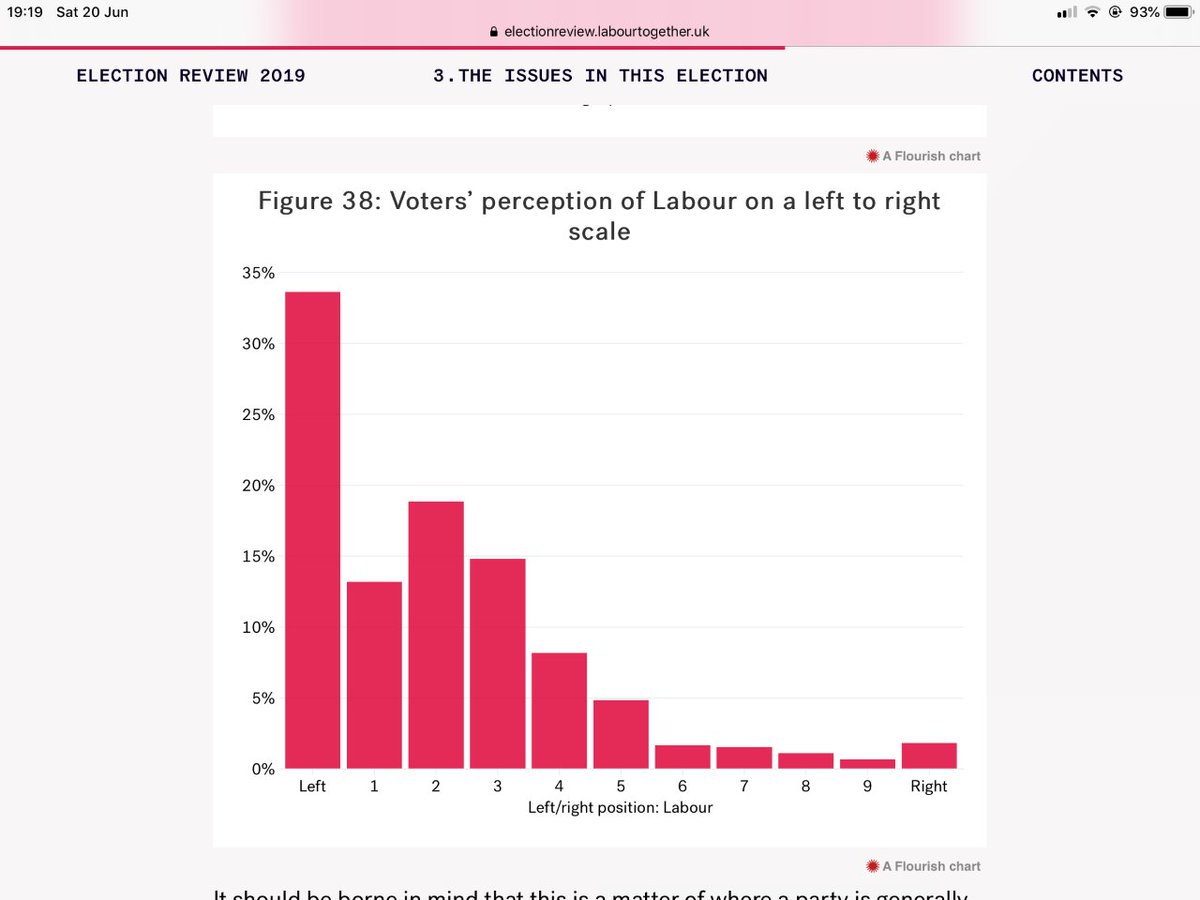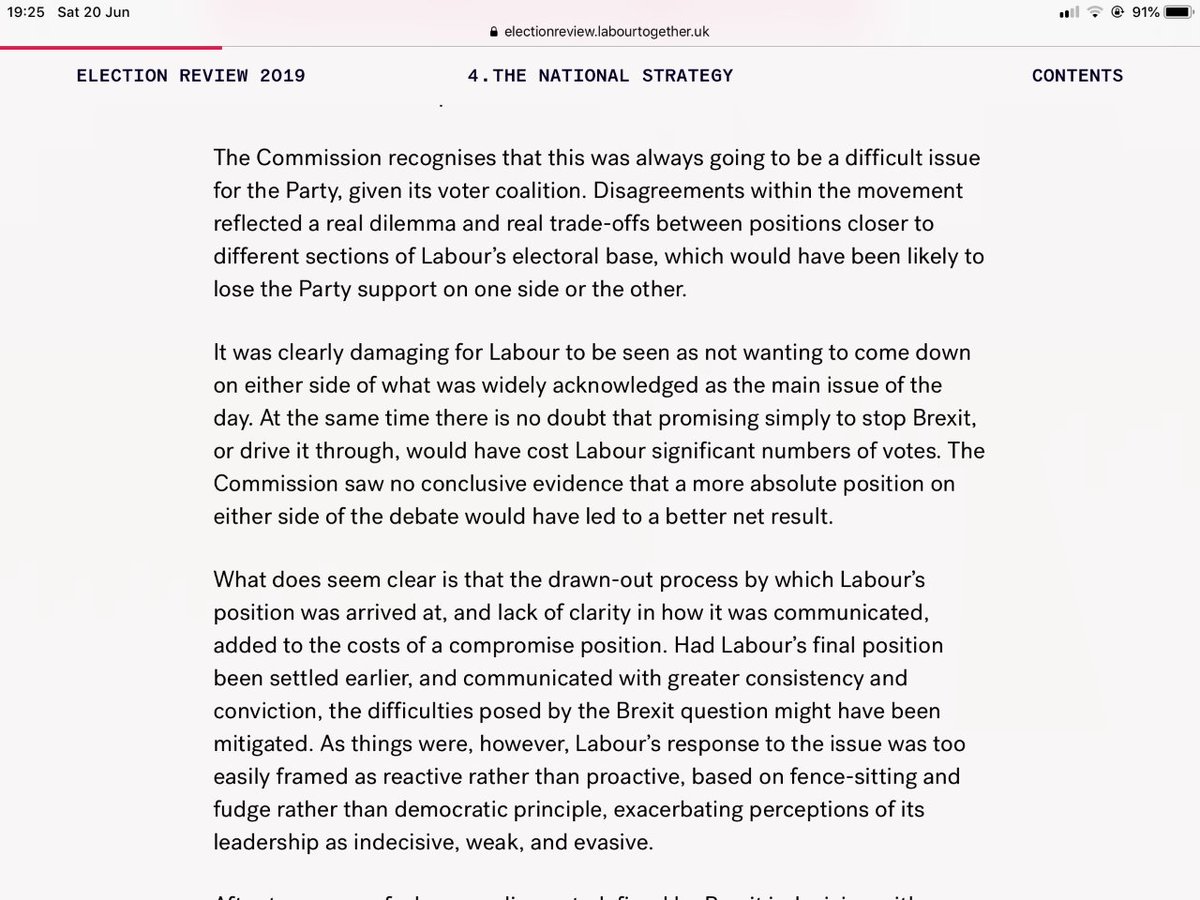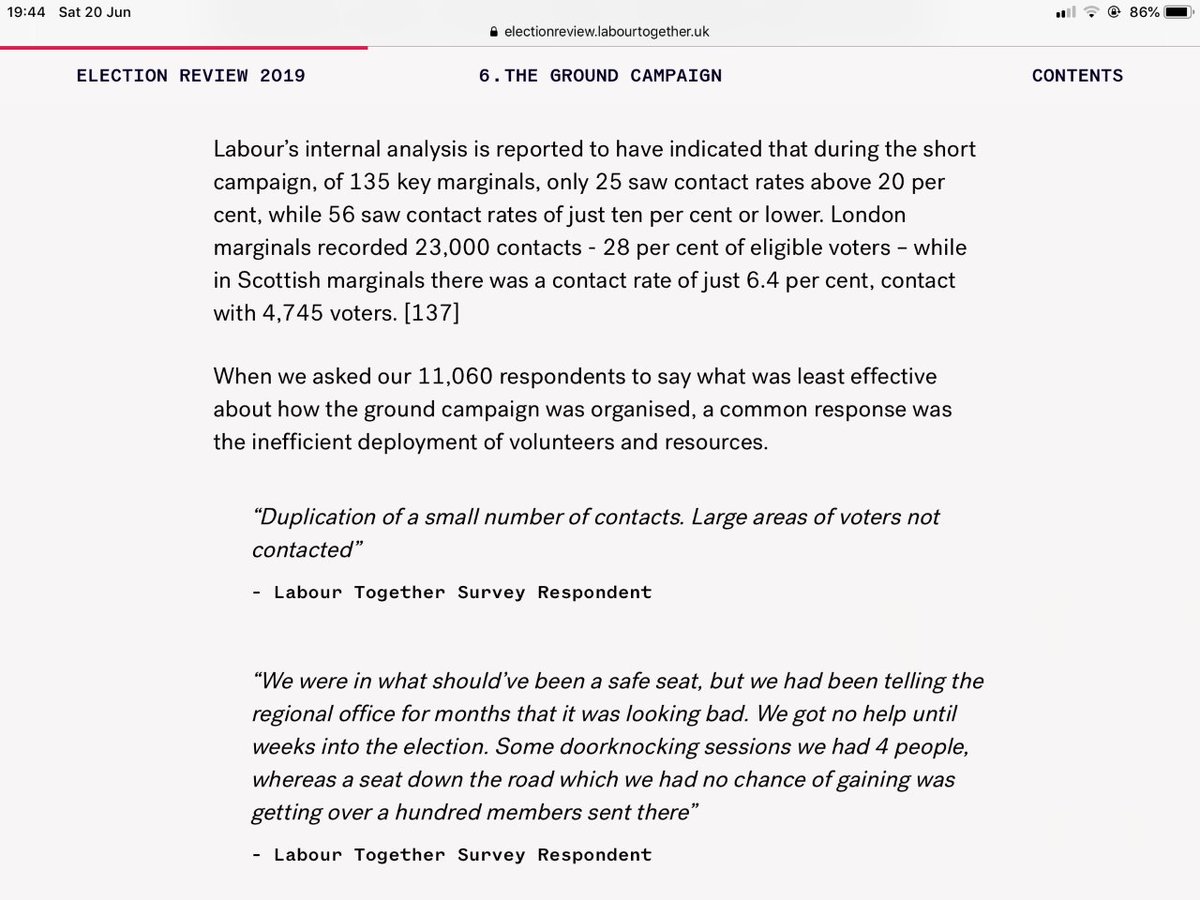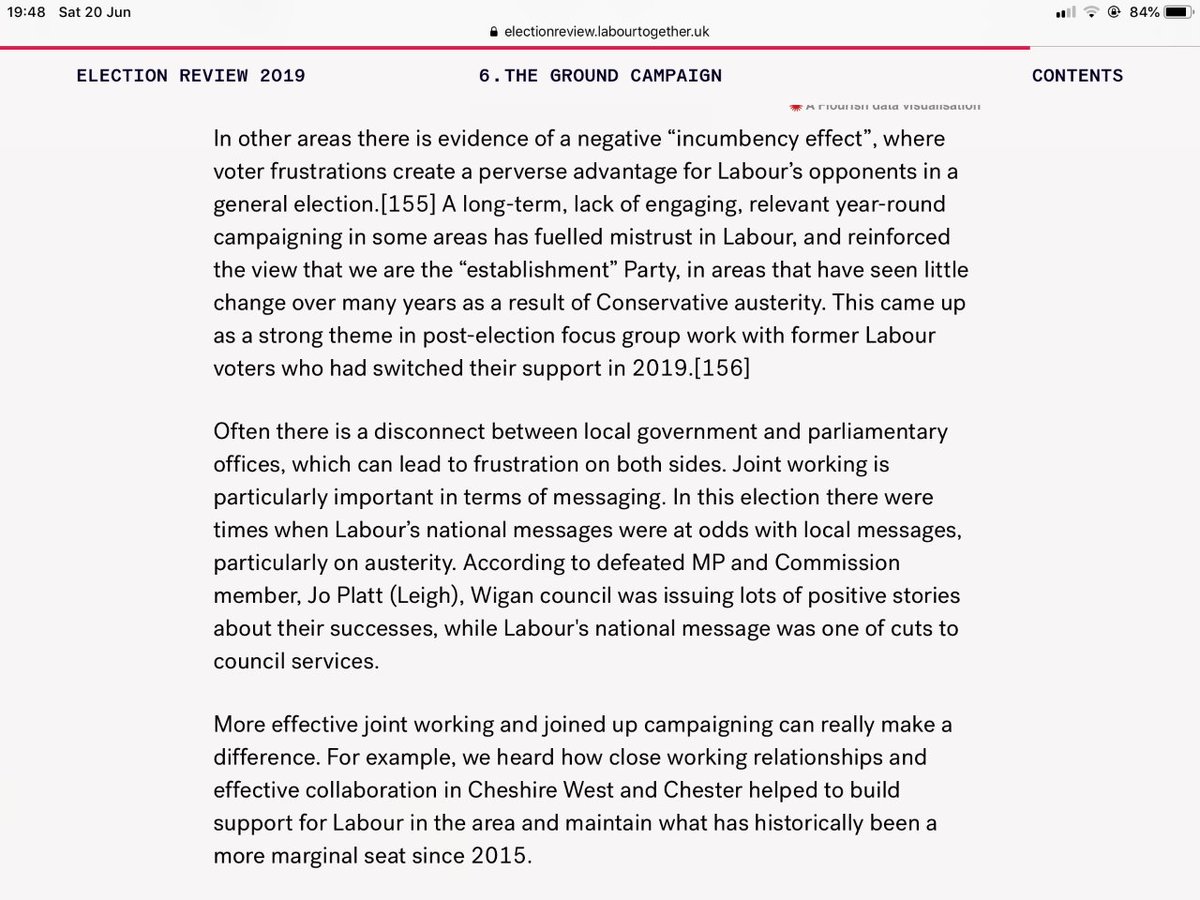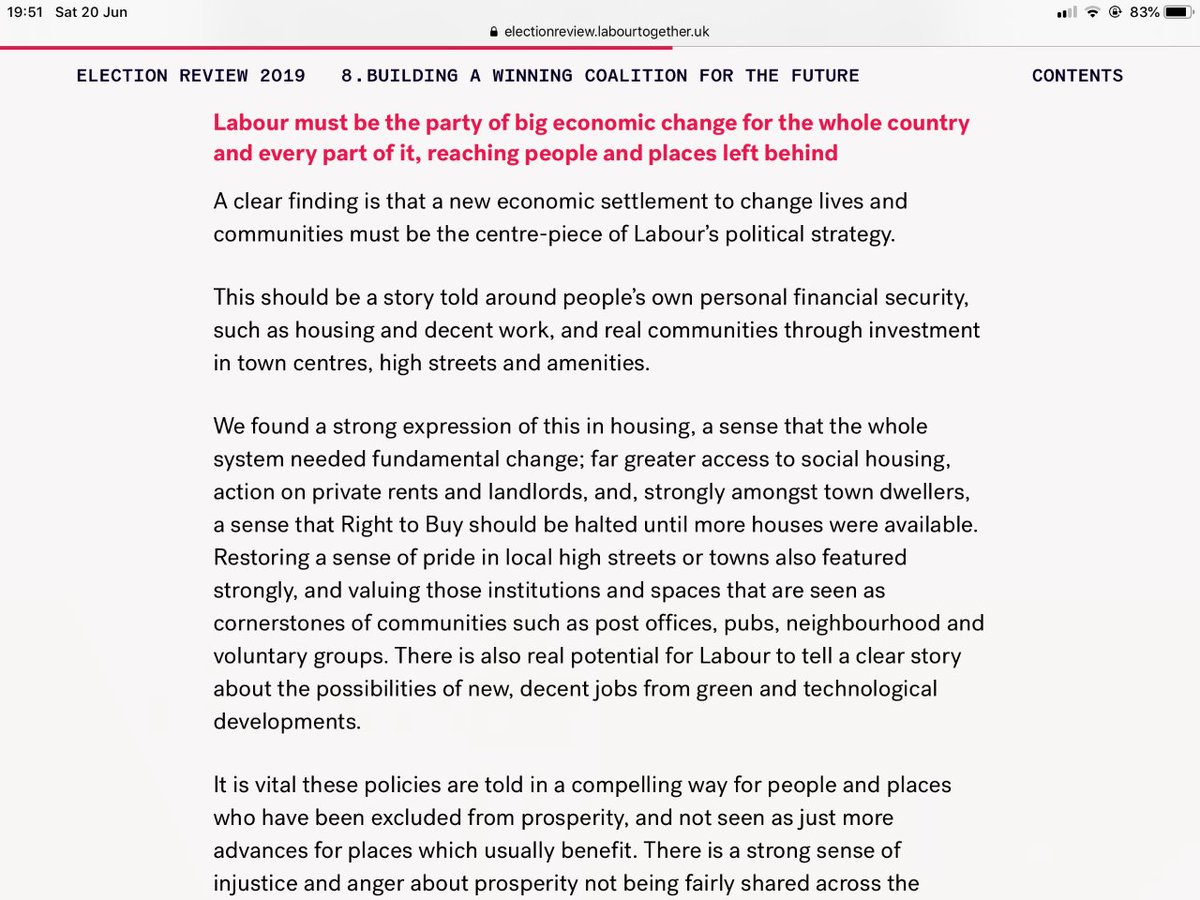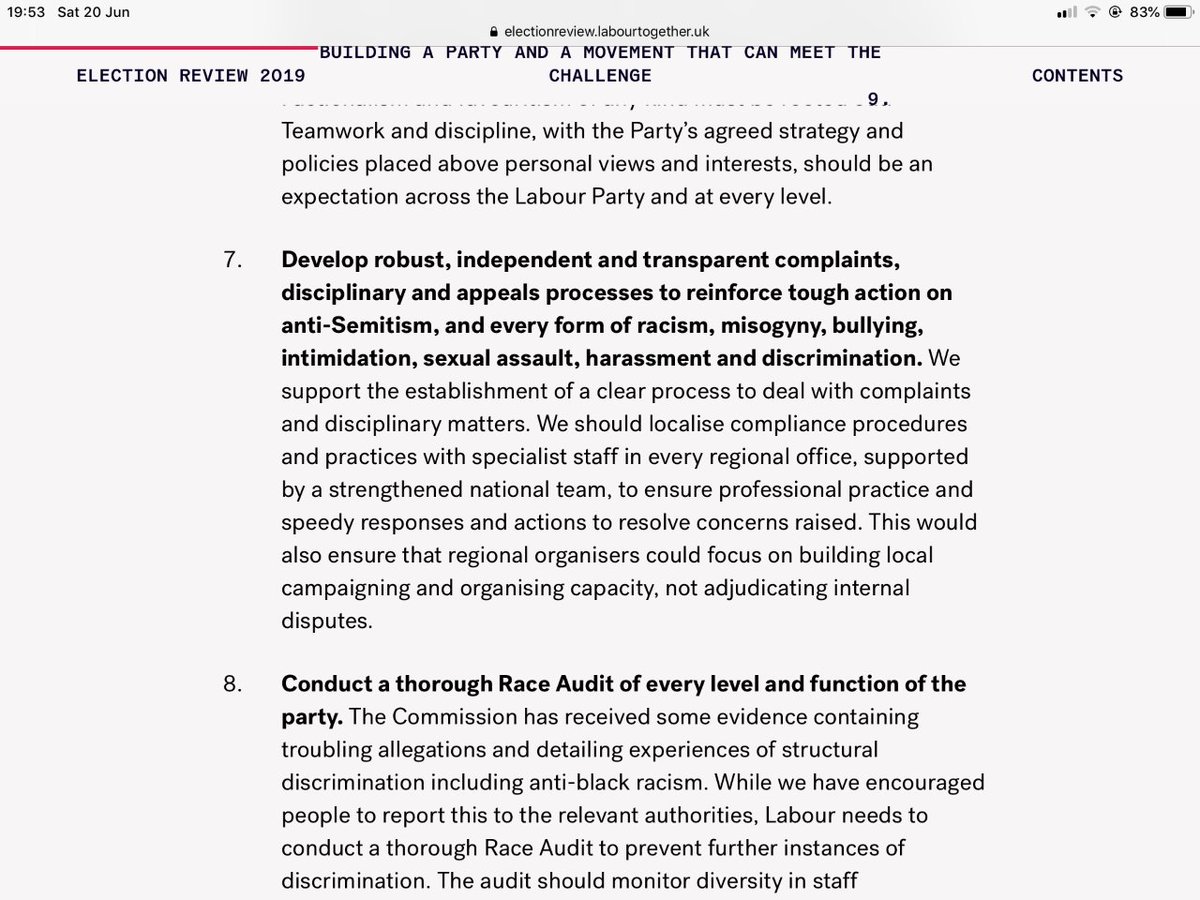1. 1.I’ve now read the @LabourTogether report into 2019’s election report. It largely chimes with my experiences as a party member of 10 years standing, branch & CLP officer and active campaigner. Thanks to the commissioners & all involved.
2. There are some key points worth calling out & some assertions I’ll challenge. Before doing so, it’s worth noting that >11,000 contributions were received which is great. However, this is not a report independent of the Labour party. 6/15 commissioners were PPCs.
3. That’s not to say the report doesn’t represent a balanced set of views but it’s important to flag. And of the contributions made there’s a disproportionate number from London & the constituencies which the commissioners do/did represent.
4. It’s not clear how/if the number of contributions was reviewed across party members, voters, former supporters but low number of Scottish voices in the report is tangible. That’s not to criticise the authors per se but worth calling out.
5. Did Jennie Formby initiate an independent review into December result? If not, why not? If so, where is it? What’s Labour going to do with this report? Selectively take sections of it? Ignore it? It’d be helpful to know.
6. There’s no getting away from it. The result was disastrous for Labour. But we can – indeed we must – recover from it. “We lost all types of voter everywhere compared with 2017, except in London." We must recognise that, work out how we fight back from here & defeat the Tories.
7. Class is no longer the key voter divide. Age, location & education are far more important. This is no surprise given increasing casualisation of work, greater proportion of higher educated voters & growth of services-based economy.
8. Members, candidates staff and supporters worked bloody hard. There was no stab in the back. Rumours saying otherwise must be quashed once and for all.
9. Tory working class vote share has gained traction through the last 3 general elections, from just shy of 30% in 2015, to ~47% in 2019. For a party his is remarkable & as a party we’ve not done enough to understand this.
10. The report cites long term causes for the erosion of Labour’s decline. Strikingly, it fails to explain why previous leaders have been unable to tackle these or how Tories have capitalised on issues which cut both ways e.g. falling political engagement.
11. The suggestion that Tory austerity adversely impacted Labour’s ability to corral its electoral coalition is worrying. Generalised falls in party loyalty apply to all parties. The report doesn’t suggest why this has benefited the Tories.
12. Unfortunately, the report does nothing to explain why it believes the drive towards more precarious work has contributed to the decline of social democratic parties in Europe. This would seem counter-intuitive.
13. On leadership, the report flags Corbyn’s lack of support & explains TiG, Brexit and party dis-unity. There’s telling little in the report about electoral concerns over foreign & defence policy positions associated with him.
14. When I canvassed in Leigh for @JoPlatt the Saturday before polling day I was met with “IRA”, “Hamas”, “I’m a veteran” on the doorstep. The report could have done more to try and put the leader’s negative polling into context.
15. Manifesto pledges (& conference motions) were not universally popular. As an example, the conference motion to ban private schools was unpopular with voters. Whilst not policy, the very optics of bringing the motion to conference proved off-putting for many.
16. Voters’ perceptions of themselves & the 2019 Labour party were wildly out of kilter, with >40% self-ID’ing as in the centre 3 deciles on a left-to-right scale. Labour was overwhelmingly seen as being far-left.
17. Despite pledges to the contrary, we were not ready for an election. “…Labour was not ready for an election and the campaign was poorly messaged and executed. There was no clear national campaign lead.”
18. The party’s Brexit stance was always going to be problematic with us losing Remain & Leave voters. What’s really concerning is we lost so many voters who didn’t even vote in the 2016 EU referendum. The dithering over a position worsened matters.
19. Campaigners weren’t sent to seats we could win or we had to defend until it was too late. My own experience is of 100s of activists being encouraged to door-knock in safe Tory seats at the expense of seats we should have been defending.
20. Again, in Leigh @JoPlatt is right to have called out the inconsistent messaging – nationally v locally around cuts to public services.
21. I’d have liked to have seen far more content on the role councillors might have in contributing to community organising, the (briefly touched on) relationship between council and MP losses & how this might be abated.
22.Looking to the future, there’s plenty of recommendations – perhaps too many! Four which stand out. One, Greater prominence for housing policy given growing insecurity.
23. Two, the need to implement a truly independent complaints process which is transparent and robust & tackles bullying, racism, misogyny. Three, a race audit across the entire party due to concerns around structural discrimination.
24. Finally, a policy-making process which looks outwards, speaks to the public not the selectorate, is rooted in what Britons want – not what Labour party members want. Controversial some may say. But this is crucial if we’re to build on our party support in 2024.
25. Sadly, many conclusions are similar to those in 2015's review. Lack of credible leader, concerns over economic competency & ability to implement manifesto. How we tackle them over the next 4 years will determine whether we’ll be able to change lives for the better. END

 Read on Twitter
Read on Twitter
